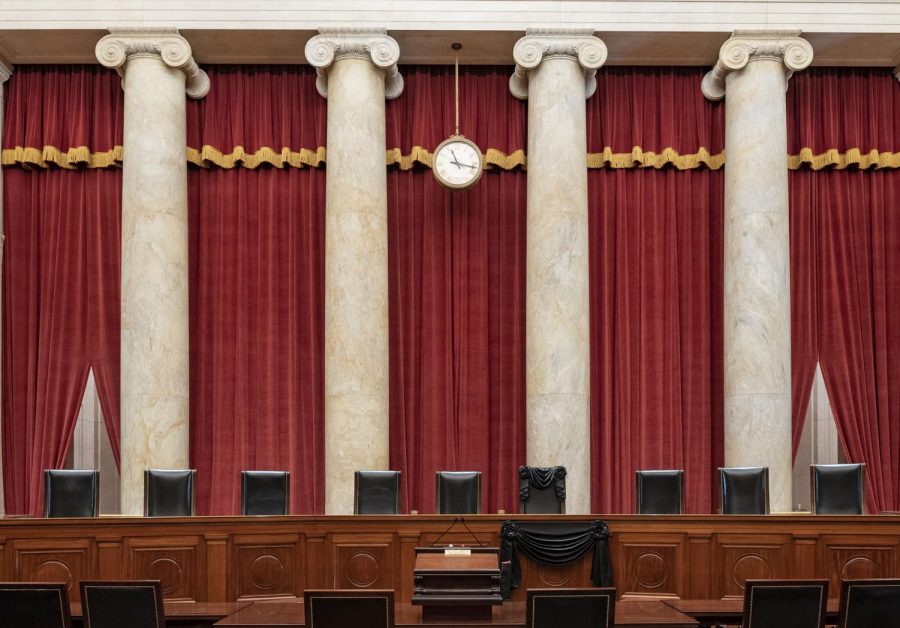The constitutionality of the Affordable Care Act
Supreme Court to decide case between March and June 2021
Photo by SUBMITTED
“I value people that need help,” Mateski said. Mateski said he would like to see everyone have a health insurance plan and he believes the ACA helps more than it hurts.
Nearly 133 million Americans have pre-existing health conditions that could disqualify them from buying a health care policy, according to the New York Times,
Since the Trump Administration added its third conservative Supreme Court justice, protections for these 133 million Americans could be repealed.
This repeal is a result of the Affordable Care Act facing the Supreme Court for the third time through Texas v. California. The case has the potential to rule the law as unconstitutional, the New York Times said.
The ACA, also known as Obamacare, has always been controversial, Eric Kasper, a political science professor at UW-Eau Claire, said.
The ACA brought on a number of lawsuits which questioned its constitutionality with the biggest one being the National Federation of Independent Business v. Sebelius, he said.
“The court ruled this was an unconstitutional regulation of interstate commerce to require people to enter the healthcare marketplace,” Kasper said.
Kasper said this requirement was the individual mandate, which forced Americans to purchase minimum health care coverage.
Those who did not buy insurance had to pay a tax penalty, which the Court decided was a constitutional tax. Because it was a tax, Congress had the power to impose it.
In 2017, President Donald Trump passed a bill into law which removed the individual mandate, effective in 2019, Kasper said.
“Because there is nothing you have to pay in as a penalty, then it’s not a tax and therefore it’s unconstitutional,” Kasper said.
Opponents of the ACA in government have argued that because the individual mandate is unconstitutional, then the whole law is unconstitutional, Kasper said.
Proponents of the law argue the rest of the ACA is severable from the individual mandate.
Part of what could be severable is the expansion of Medicaid, which provides healthcare for people in poverty, Kasper said.
The New York Times said about 12 million adults could lose their Medicaid coverage.
However, some states rejected the federal funding to expand their Medicaid programs because it is already one of the highest expenses for the states, Kasper said.
Harry Mateski, a third-year political science student, said he thinks the ACA was meant to incentivize people to have health care. This is what led to the disagreement between Democrats and Republicans.
“One side views it as a human right and one side will view it more from a fiscal perspective,” Mateski said.
Mateski said he believes the ACA helps more than it hurts and he hopes the expansion of Medicaid can be severed from the mandate.
He said he believes it is a high likelihood other people know somebody who is touched by the ACA.
The tax penalty is what got his family members to get health insurance, Mateski said, and he agrees with adding an incentive for Americans to buy health insurance.
“I would prefer to see everybody insured, but I don’t think requiring a mandate is necessarily the way to go,” Mateski said.
Kasper said he predicts the Supreme Court will rule the ACA unconstitutional. But there will not be an official decision until anywhere from June to March, 2021.
Plueger can be reached at pluegemf2903@uwec.edu.

Miles Plueger is a third-year public relations and marketing student. He spent quarantine teaching himself guitar. He also makes a mean chicken stir fry.


